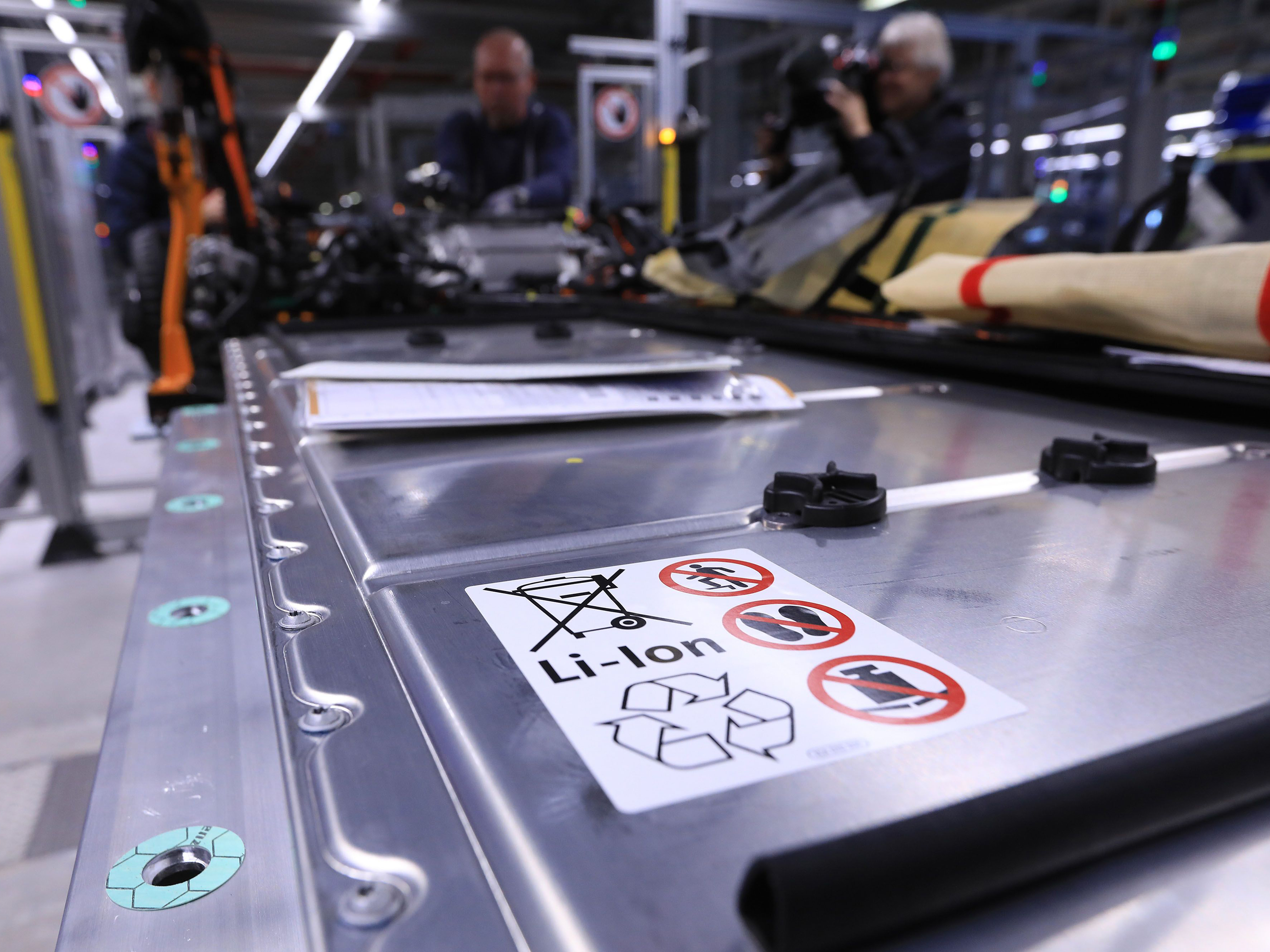
Visit Our Sponsors |
|
|
|
|
|
|
|
|
|
|
|
|
|
|
|
|
|
|
|
|
|
|
|
|
|
|
|
|
|
|
|
|
|
|
|
|
|
|
|
|
|
|
|
|
|
|
|
|
|
|
|
|
|
|
|
|
|
|
|
|

The Biden administration’s first test of its climate change policy could come this week in a legal dispute over battery components seen as key to growing electric vehicle adoption in the U.S.
The U.S. International Trade Commission is scheduled to decide Feb. 10 whether to ban imports of lithium-ion battery components that the South Korean battery maker SK Innovation will need to produce battery cells for the electric Ford F-150 and Volkswagen ID.4 at a factory under construction in Georgia. LG Chem, a supplier to such carmakers as General Motors Co. and Tesla Inc., and a competitor of SK also based in South Korea, filed its claim in April 2019, alleging that SK’s batteries use stolen trade secrets.
If the commission sides with LG, the decision could upend battery output and hamper electric vehicle production in the U.S. A favorable ruling for LG could complicate the green energy agenda of President Joe Biden, who has pledged to promote EV adoption. One early example was his Jan. 27 rollout of an ambitious plan to convert the federal vehicle fleet to EVs. That policy initiative, combined with targets for EV sales more broadly in the U.S. — California, for example, will phase out the sale of new gas-powered vehicles by 2035 — is expected to stoke demand for EV batteries from carmakers, including Ford, GM, and Volkswagen, over the next decade.
Automakers are investing billions of dollars to bring new electric vehicles to the U.S. and other global markets. Their success hinges on securing the most critical — and expensive — component: the battery. The vast majority of automotive-grade battery cells are made by a handful of companies based in China, Japan and South Korea. Industry observers warn there isn’t enough supply to meet demand.
If the commission sides with LG Chem, SK Innovation’s best hope would be persuading the new president to veto the import ban. Only once in more than three decades has a U.S. president overruled an ITC decision. Rare as it would be, SK contends the president should consider such a move, arguing that a ban would be bad for American jobs and undermine his pledge to fight climate change.
SK expects to start production in late 2021 and has pledged to hire 2,600 people by 2024 as part of its investment in the facility. Volkswagen plans to double the share of sales of fully electric vehicles this year and start local EV production at its U.S. factory in 2022. Ford has announced an $11.5 billion investment in battery-powered vehicles through 2022.
LG Chem already manufactures batteries at a plant in Holland, Michigan. It is erecting an additional factory in Ohio to build GM’s Ultium batteries. The Detroit-based automaker recently set a goal for ending sales of gasoline-powered vehicles by 2035.
LG, which has argued it can fulfill the needs of other automakers, has accused SK of poaching its workers to gain access to sensitive information on LG’s battery technology. SK also has been accused of destroying evidence in the matter. SK has admitted it destroyed records, but said that it did so before LG’s complaint was filed and that no critical records were lost.
The trade judge handling the case, in response to various filings, said SK Innovation’s destruction of documents was “done with a culpable state of mind and with the intent to hide evidence of trade secret misappropriation”; he entered a default judgment in favor of LG Chem in February 2020. The commission is reviewing that finding.
The ITC now has several options, including affirming the earlier ruling and issuing the import ban, or overturning the decision and ordering a trial on the underlying trade-secret theft allegations. The import ban would include batteries already made in Korea and components for cells to be assembled in Georgia.
“The U.S. automotive industry is on the cusp of a major transition to electric vehicles as part of a broader effort to combat climate change — a transition that is wholly dependent on a sufficient supply of EV batteries,” SK Innovation told the agency.
The company has hired as an expert witness Carol Browner, who headed the Environmental Protection Agency during the Clinton administration and was head of an energy and climate group advising the Obama administration when Biden was vice president. SK Innovation’s Georgia plant is a “critical step,” Browner said, in efforts to broaden acceptance of electric vehicles by consumers.
“The SK batteries to be supplied to Ford and VW will serve a critical role in demonstrating the capabilities of electric vehicles for the most popular vehicles and vehicle classes in the nation,” Browner wrote in a report submitted to the trade agency.
Volkswagen told the commission that it’s “committed over $800 million to building out domestic manufacturing of EVs, a commitment that stands to create over 1,000 new jobs, 15,000 training opportunities for U.S. workers, and over 150,000 affordable EVs per year.” In a filing with the agency on behalf of SK, Volkswagen said, “The losers in a scenario that destroys this arrangement are American workers who want higher-wage manufacturing jobs and American consumers who want competitively-priced electric vehicles.”
No matter what the outcome is on Feb. 10, perils lie ahead for LG and SK as both have other pending cases at the agency accusing each other of infringing patents and seeking import bans against one another. Decisions in those cases are expected later this year.
RELATED CONTENT
RELATED VIDEOS
Timely, incisive articles delivered directly to your inbox.







